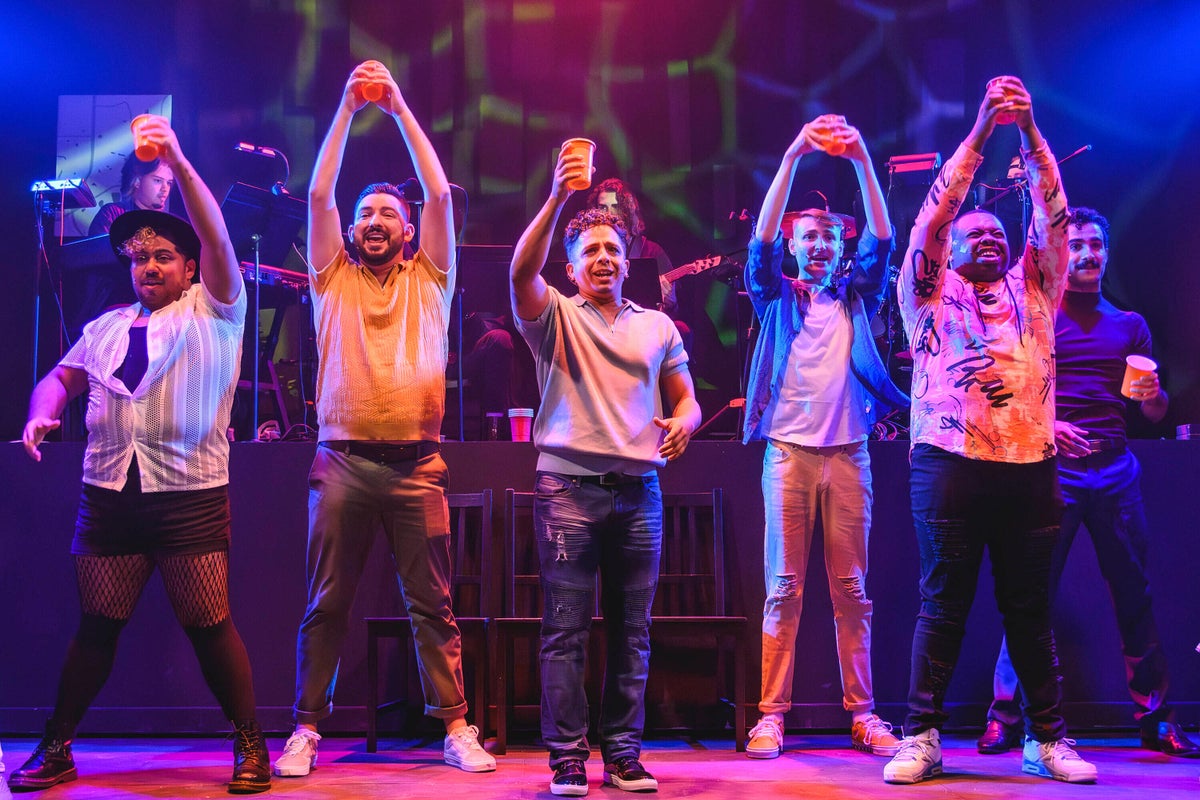
Playwright Donald Rupe didn't intend to write a musical about the Pulse nightclub massacre in Orlando, Florida. What he wanted to write about was his friends. But the more he dug into it, the more he returned to his hometown's 2016 trauma.
“The Pulse connection really was not planned, but if I was going to write honestly about myself and about my friends around that time period, it would be false not to talk about how it affected us,” Rupe says from Orlando.
What the playwright has crafted is the powerful, moving “From Here,” which explores the complex feelings and community reactions in the days after a lone gunman killed 49 people at the gay-friendly club in Orlando.
The musical, making its off-Broadway debut this summer, centers on Daniel, a 30-something with a tight-knit group of queer friends navigating life, insecurity and relationships with humor and kindness. He also has a torturous relationship with his mother.
“It is and it isn’t about Pulse,” says Rupe. “We don’t even mention Pulse for the first 45 minutes of the show. But then, like it did in real life, once that moment intersects with the daily drama of the show, it changes the entire show. That’s intentional because that’s what it felt like here.”
The deadliest attack on the LGBTQ community in U.S. history left 49 people dead and 53 people wounded as “Latin Night” was being celebrated at the club. Gunman Omar Mateen was killed after a three-hour standoff with SWAT team members. He had pledged allegiance to the Islamic State.
At the time, it was the worst mass shooting in modern U.S. history. But that number was surpassed the following year when 58 people were killed and more than 850 were injured among a crowd of 22,000 at a country music festival in Las Vegas.
“From Here” debuted at the 2019 Orlando Fringe Festival and has had a few limited runs in central Florida and a concert version in New York. It lands at The Pershing Square Signature Center in Manhattan on June 27 and runs into August.
While Rupe didn't lose any close friends in the massacre, actor-singer Blake Aburn, who plays Daniel, did. Each performance he relives the horror, but he points out that he's also telling a story about love and acceptance.
“It’s really cathartic, to be honest with you. The Pulse tragedy was really hard for me and it was a tough time for everyone in Orlando,” he says.
“The story ends on a high note. The story ends with Daniel feeling hopeful. So it’s easy to kind of go through it that way — to think of the emotions rather than the tragedies.”
Rupe has lengthened, re-shaped and edited the musical ever since it debuted as a 15-minute presentation at the fringe festival. He says he wanted to tell a story that was deeply personal in a way that is respectful but also meaningful. The audience is never taken inside the nightclub but feel the aftereffects of the shootings.
While the play is grounded in the Orlando experience, Rupe thinks it can be appreciated by any community that has suffered mass trauma, especially places rocked by gun massacres, like Newtown, Connecticut;Blacksburg, Virginia, and Uvalde, Texas.
“I think so many people now, unfortunately, have a connection to shared trauma or shared grief, whether it’s in the face of nonsensical gun violence or something widely experienced as the pandemic,” Rupe says.
For Omar Cardona, a veteran of “The Voice” who plays Ricky, a love interest for Daniel, the massacre is “way too close to home." He was born and raised in Orlando, and one of his good friends was killed that night.
“It’s a huge responsibility, a gigantic responsibility, for us to be able to portray it and portray it honestly,” Cardona says. “The tears just flow.”
The first song in the show after the shooting is “When Angels Fall,” with the powerful lyrics: “The world stopped moving — frozen by a disapproving God/When angels fall, the city walls all disappear/We're all from here.”
Rupe and the cast hope that the musical can lead to healing or a shared understanding of a dark time. It may also tell what can happen to a city torn apart by senseless gun violence.
"It’s a story that needed to be told because, yes, we will always continue to remember and we will never forget those who are lost, but I feel like we needed something to finish this story and to put it into the ether," Cardona says.







